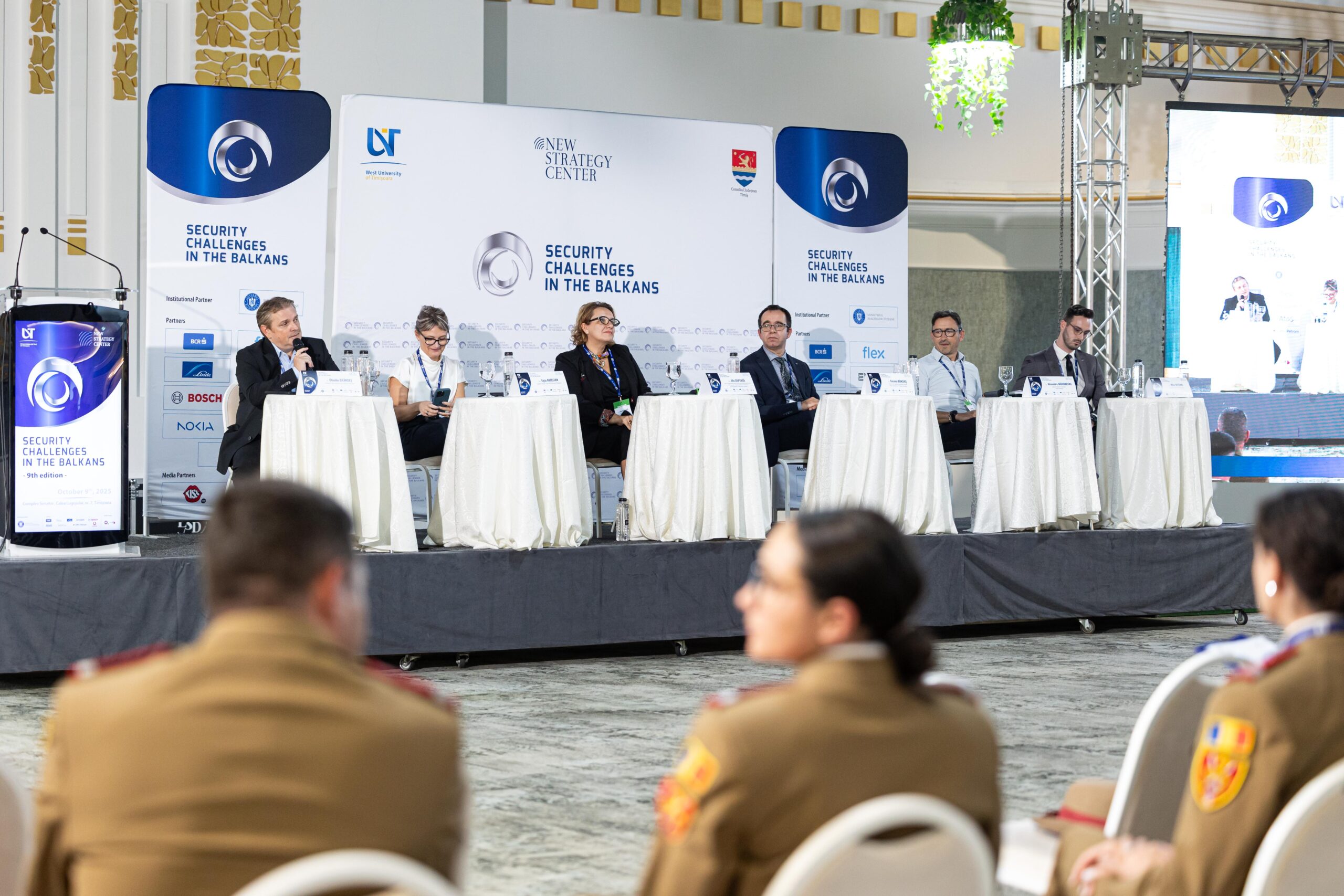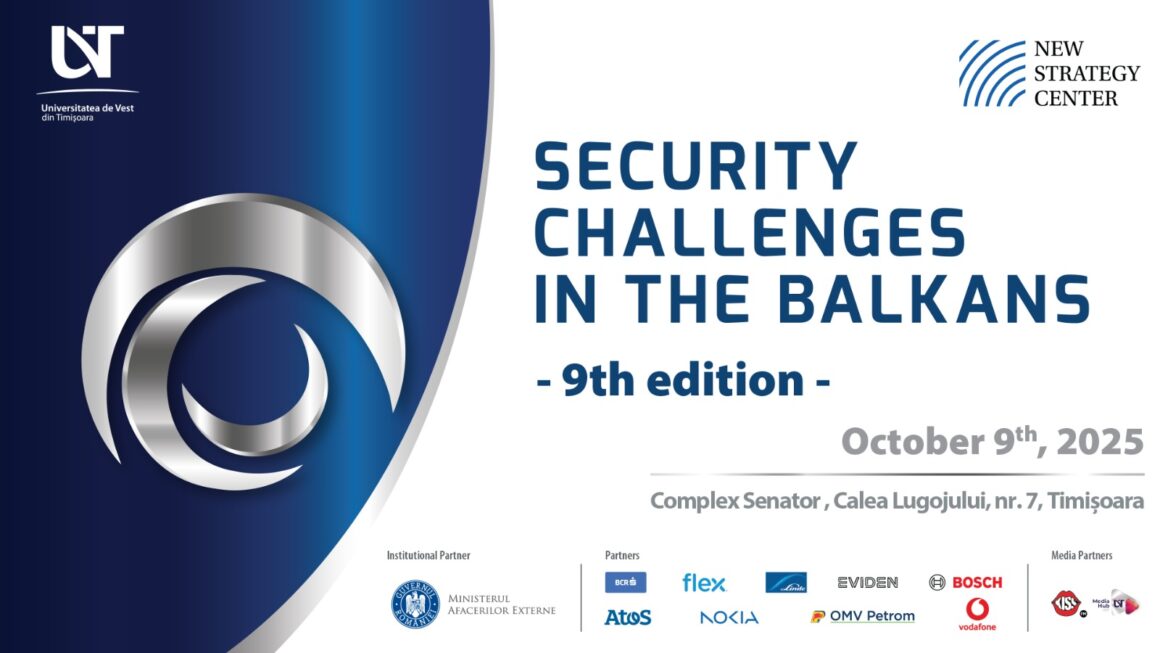On October 9, the consortium formed by the West University of Timișoara and the New Strategy Center is organizing the ninth edition of the international conference “Security Challenges in the Balkans” in Timișoara. The event is held under the Patronage of the Ministry of Foreign Affairs of Romania.
At the opening of the event, speeches were delivered by Mr. Marilen Pirtea, Rector of the West University of Timișoara; Mr. Ionel Nițu, President of the New Strategy Center; Ms. Cornelia Micicoi, Prefect of Timiș County; and Mr. Ruben Lațcău, Deputy Mayor of Timișoara.
Marilen Pirtea emphasized the institution’s commitment to promoting academic debate on geopolitical, economic, and social challenges. The Rector highlighted the essential role of the academic environment in fostering critical, informed, and solution-oriented thinking. Ionel Nițu, President of the New Strategy Center, encouraged open dialogue among researchers, decision-makers, and international experts, underlining that this year’s edition addresses key topics ranging from regional geopolitical tensions to the impact of new technologies on security in the Balkans. Cornelia Elena Micicoi, Prefect of Timiș County, stressed the importance of cooperation among public authorities, academia, the private sector, and civil society in managing complex security challenges. She pointed out that building a stable and secure Balkan space also requires investment in education, culture, and economic development—considered the foundations of regional peace and prosperity. Ruben Lațcău, Deputy Mayor of Timișoara, offered a local perspective on Romania’s internal resilience in a volatile regional context. He identified technological innovation and integrity as key pillars for strengthening the nation’s capacity to face future challenges, emphasizing that genuine resilience begins within society itself.
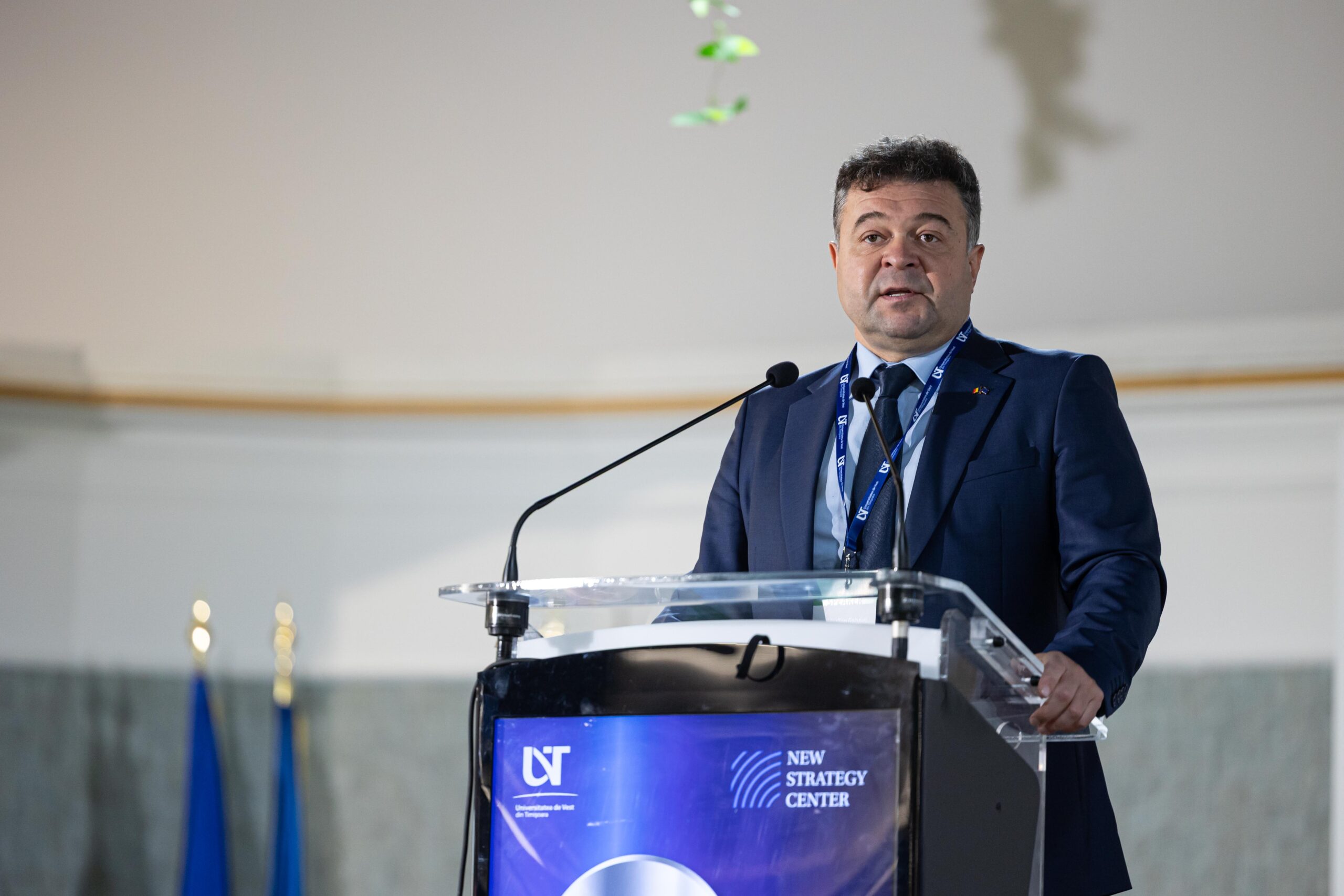
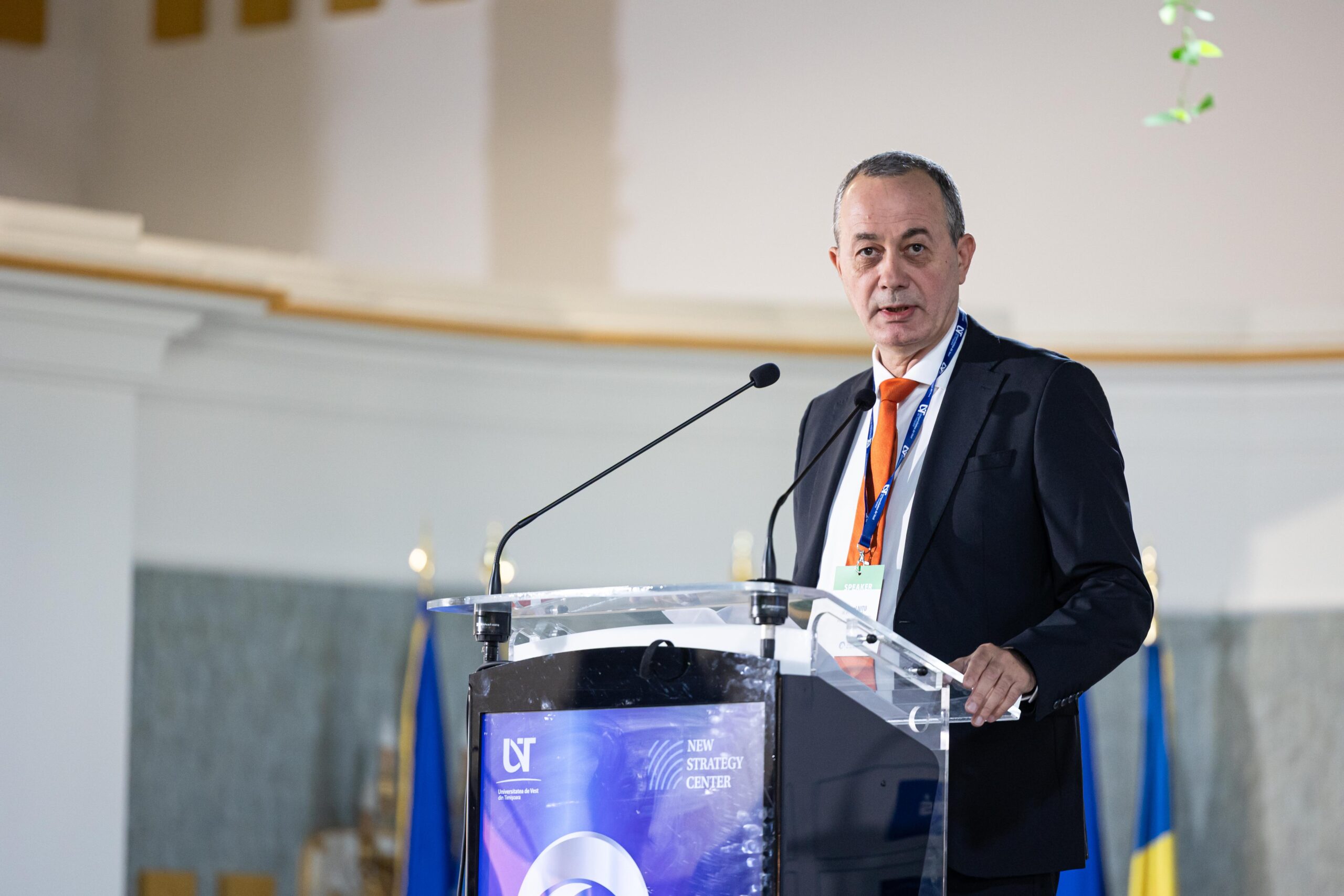
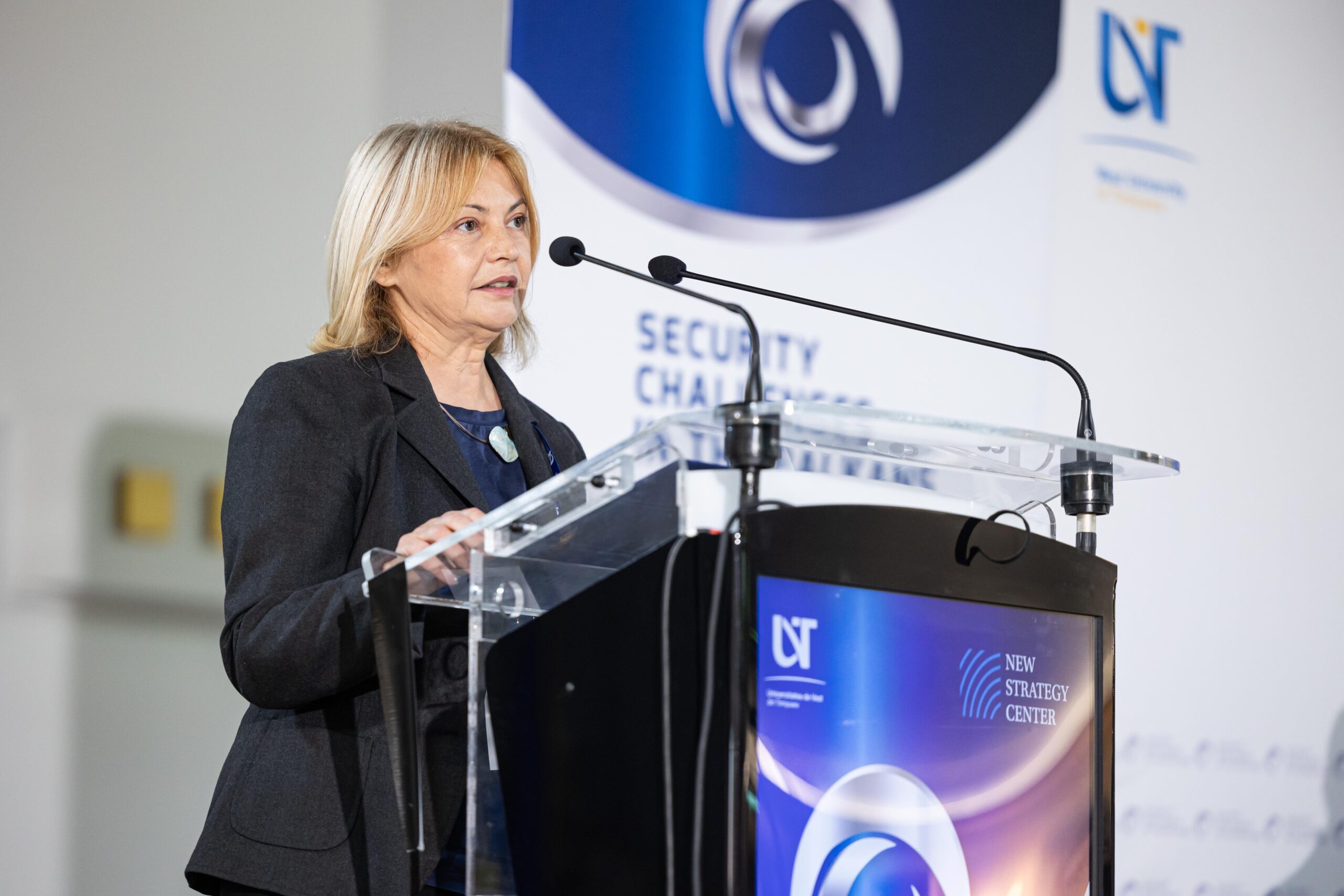
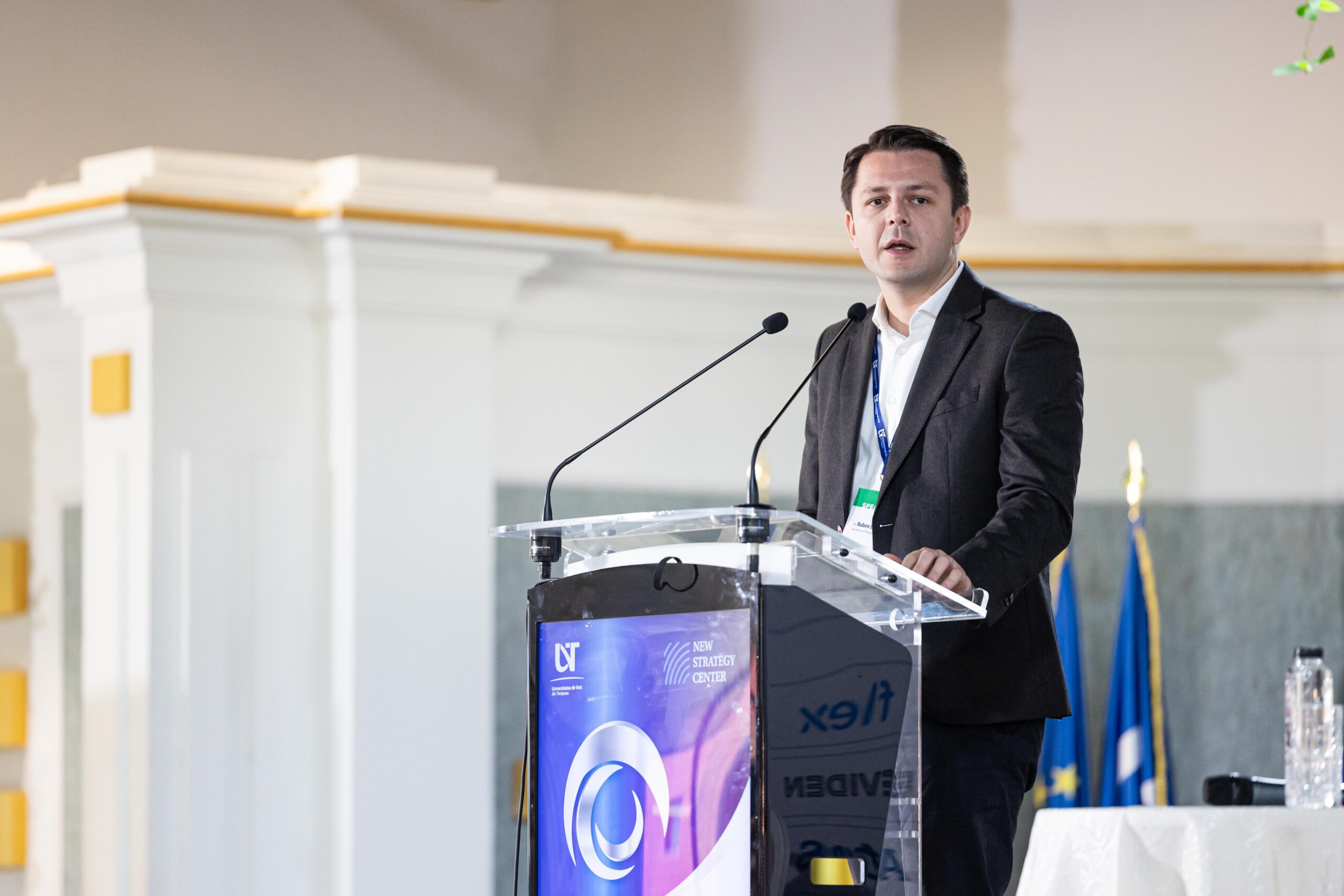
The first panel, entitled “Where Are the Balkans in the Current Global Strategic Environment? (In)Stability, (In)Security, (Un)Predictability” was chaired by Mr. Leonard Orban, Member of the Scientific Council at New Strategy Center, Romania. The speakers included: Mr. Mihail Harbic, General Director, The Department for European Bilateral Relations and Regional Cooperation, Ministry of Foreign Affairs, Romania; Lieutenant General Cristian Dan, Commander, Multinational Corps South-East, Romania; Mr. Marc R DeVore, Senior Lecturer, School of International Relations, University of St. Andrews, UK; Mr. Vuk Vuksanovic, Senior researcher, Belgrade Center for Security Policy, Serbia; and Mr. Emmanuel Dupuy, President, Institute for European Perspective and Security, France.
During the panel, speakers emphasised Romania’s active role in regional security through its contributions to UN, NATO, and EU missions, including its current command of EUFOR Althea until January 2026. Participants emphasized that the Western Balkans, far from being Europe’s periphery, represent a strategic crossroads facing ongoing challenges such as weak infrastructure, demographic decline, corruption, hybrid threats, and unresolved post-conflict tensions. They highlighted the need for stronger cooperation, institutional resilience, and renewed European and transatlantic engagement to counter external influences, notably from Russia and China. Despite these challenges, the region remains vital to Europe’s stability, with shared security, connectivity, and dialogue essential for lasting peace and development.
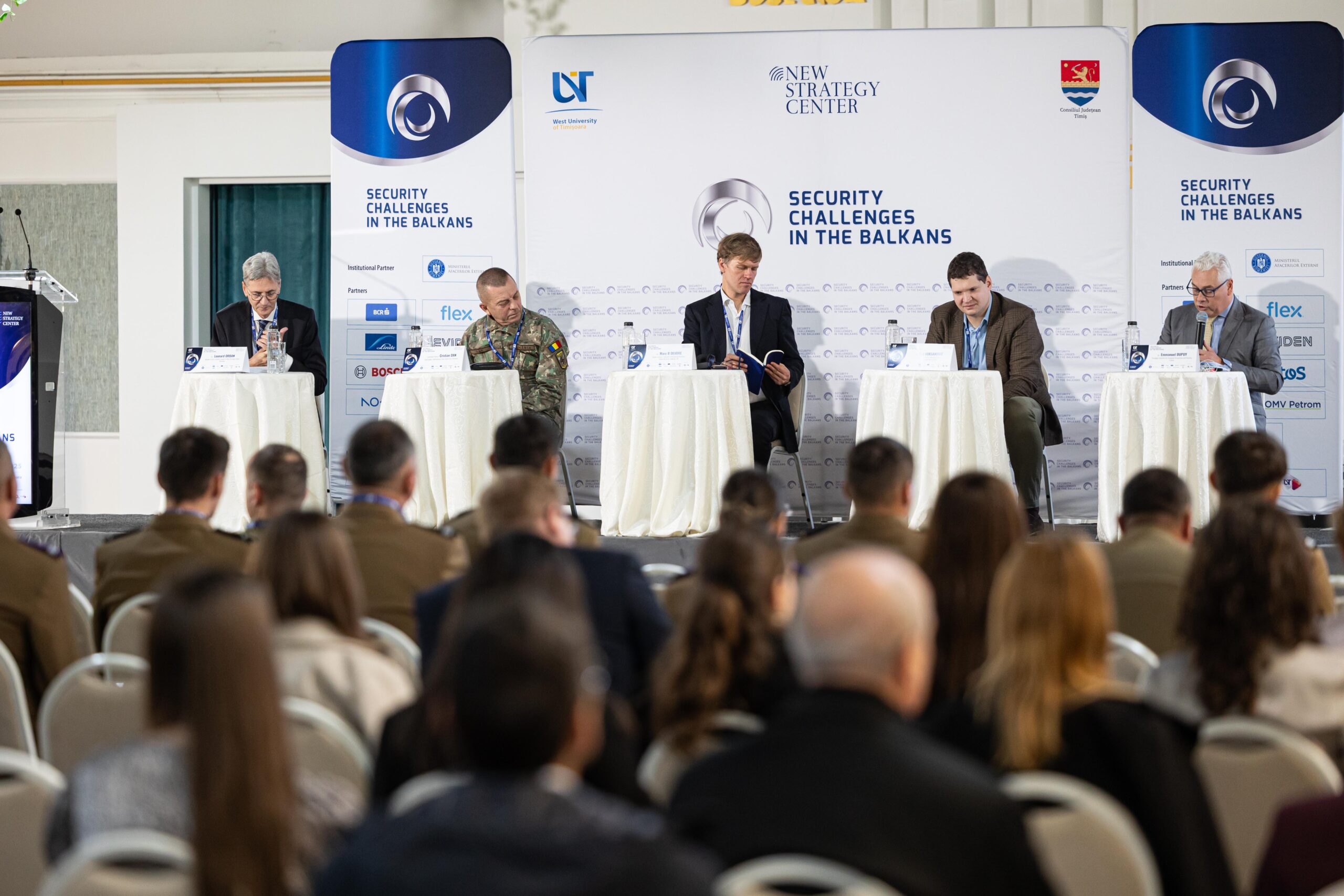
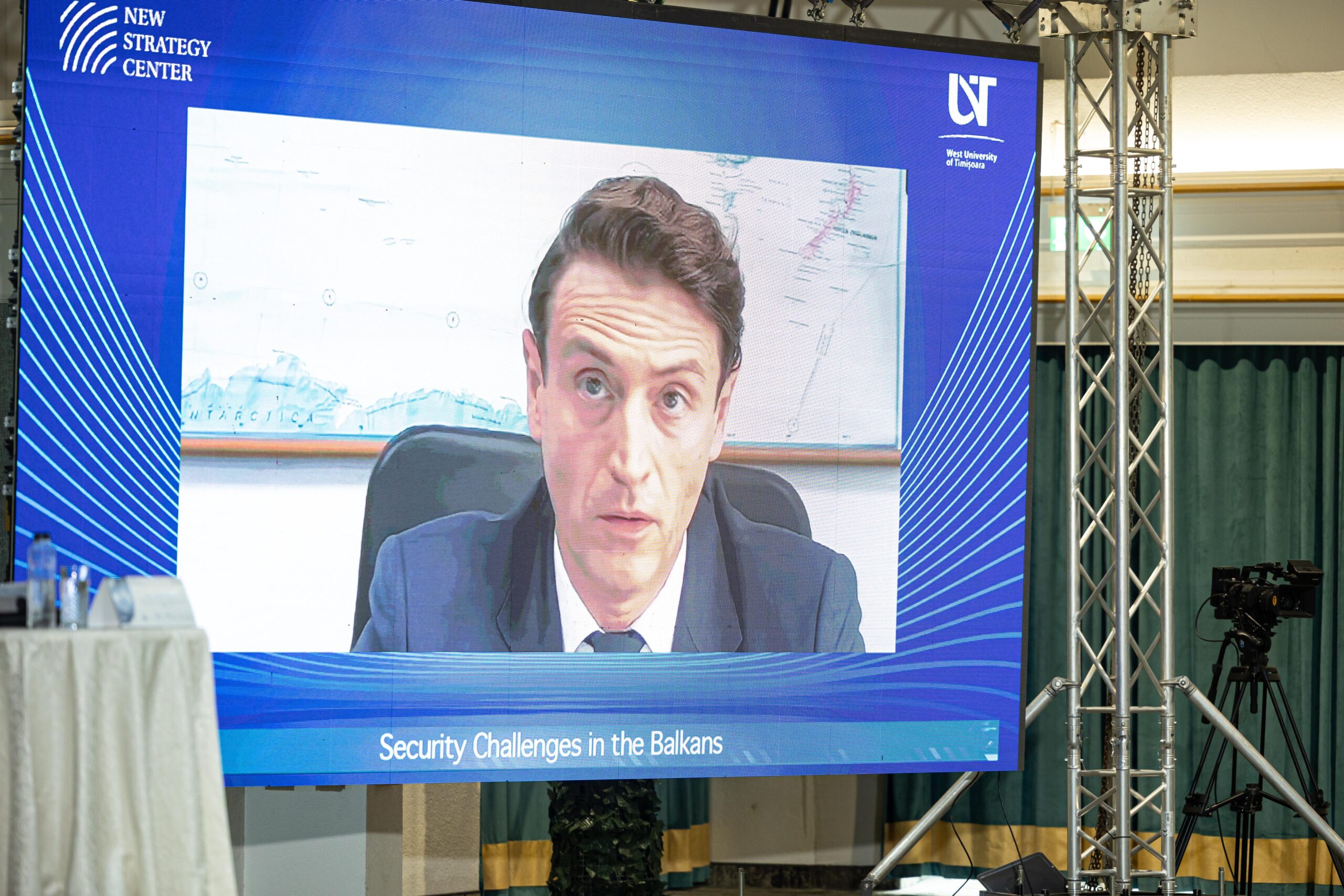
During the conference, Ionel Nițu, President of the New Strategy Center, moderated the presentation of the volume România 2030: Tendințe, Provocări, Oportunități, together with George Scutaru, CEO of the New Strategy Center, and Leonard Orban, member of the Scientific Council.
Ionel Nițu emphasized that the volume represents an exercise in anticipating security challenges and international relations up to 2030, inviting readers to reflect on the perspectives presented. The book brings together diverse insights on both the international and national context, offering an accessible and thematically structured reading on key security issues. Leonard Orban discussed the internal and external challenges facing the European Union, highlighting the impact of the war in Ukraine and the importance of European strategic autonomy, while George Scutaru analyzed security guarantees for Ukraine and the need for a strong military presence, emphasizing the strategic implications for Romania and arguing for the necessity of supporting Ukraine to safeguard its borders. The presentation also included geostrategic scenarios for Romania, stressing the importance of a proactive security and defense policy.
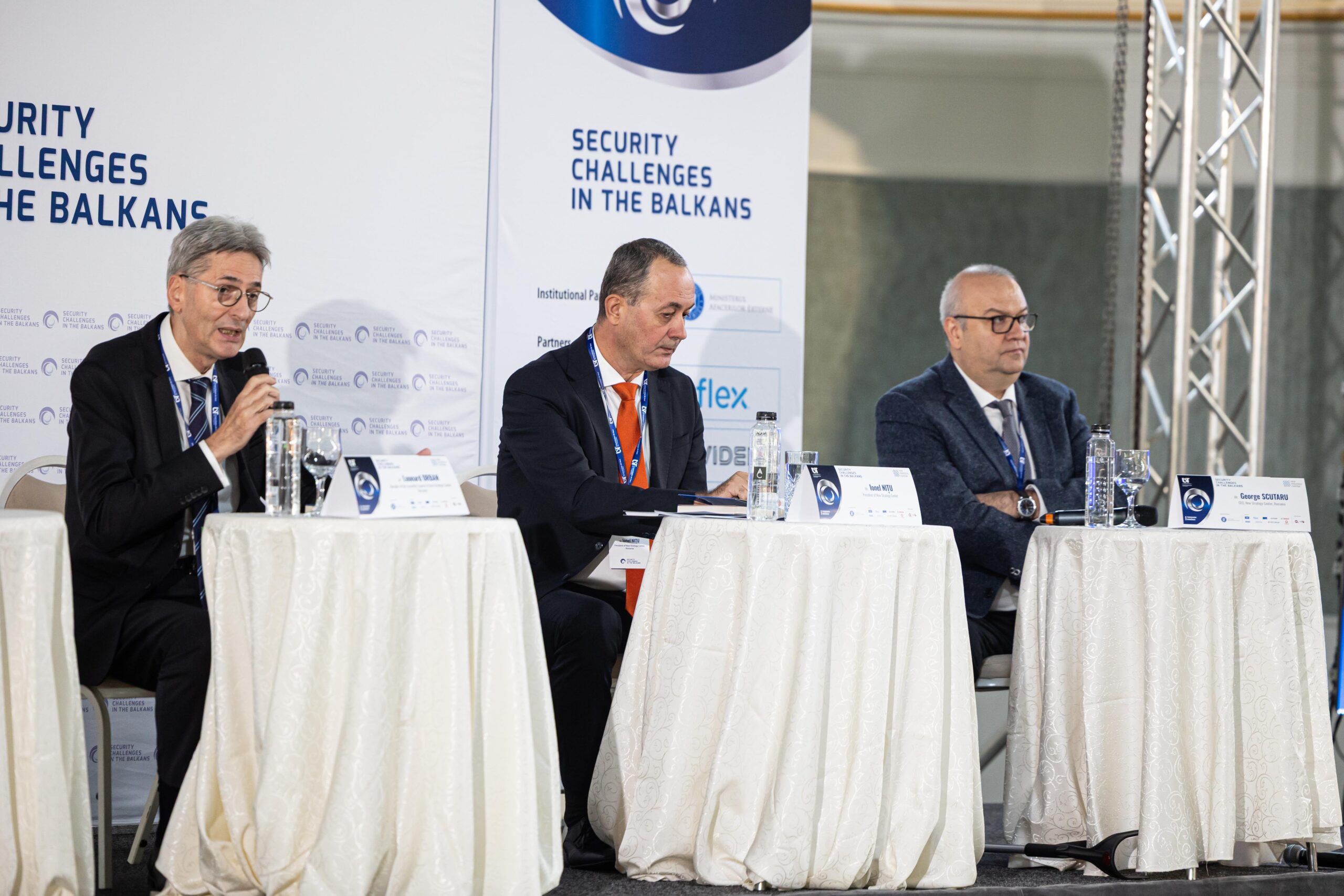
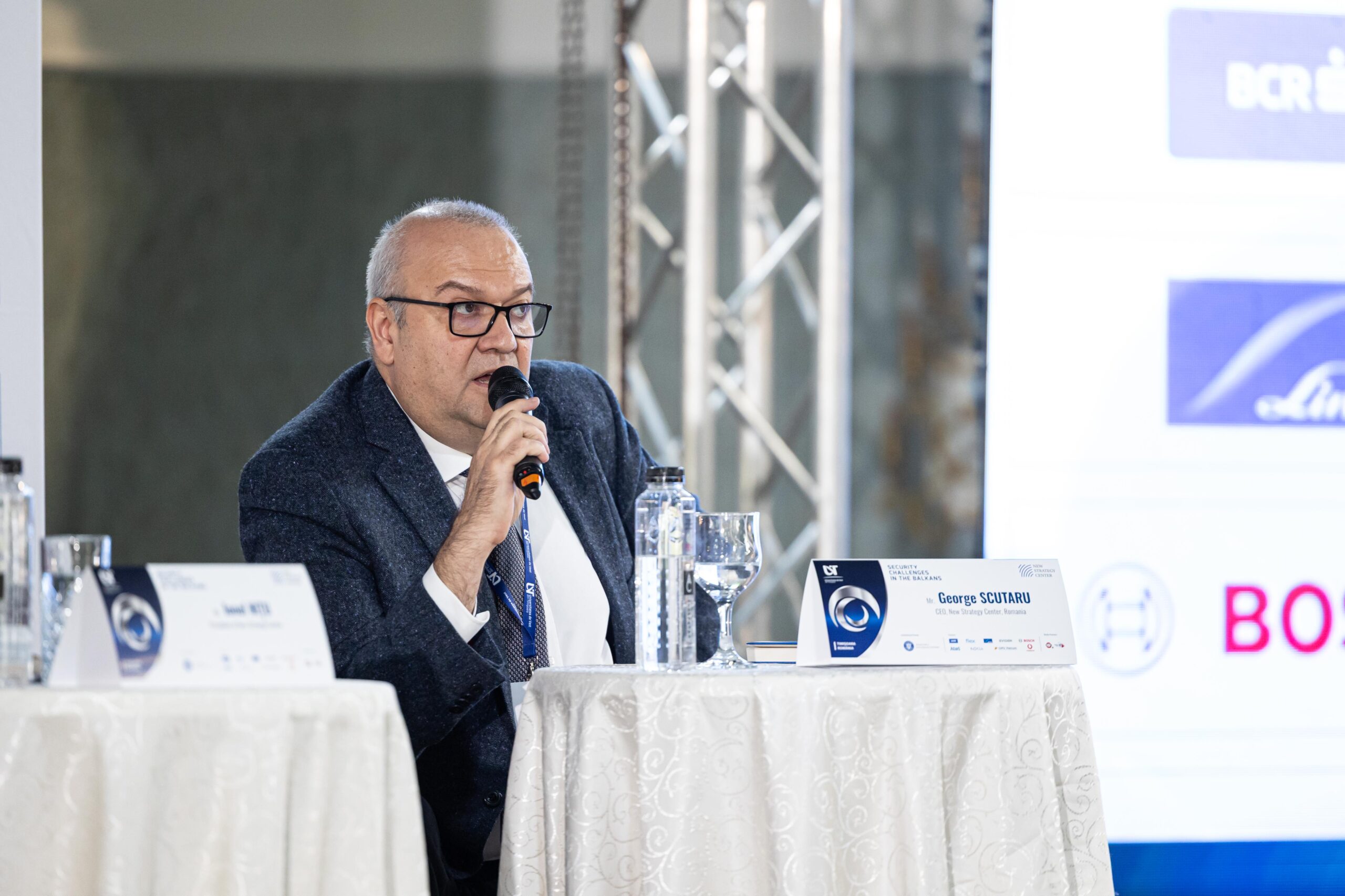
Panel II. Strategic Corridors and Global Power Competition: Impact on Security and the Economy
The panel was chaired by Mr. Laurențiu Pachiu, Senior associate expert, New Strategy Center, Vice President, Energy Policy Group, Romania; Mr. Kaush Arha, President, Free & Open Indo-Pacific Forum, Nonresident Senior Fellow, Scowcroft Center for Strategy and Security, Atlantic Council, US, Ambassador Fatih Ceylan, President, Ankara Policy Center, Türkiye; Mr. Alexandru Maximescu, Vice president, OMV Petrom, Romania and Mr. Jochen M. Richter, Chair Global Security Forum at Diplomatic Council, Luxembourg.
The debate highlighted the Balkans’ strategic importance as a crossroads between Europe, Asia, and the Middle East, an area shaped by energy, trade, and infrastructure corridors but also by geopolitical rivalries. Speakers emphasized how new global dynamics, from climate change to great power competition, are redefining security and economic relations.
Discussions focused on key economic corridors linking Central Asia, the Caucasus, and Europe, including Romania’s role in the Black Sea–Baltic and Balkan connectivity projects. Turkey’s perspective underlined the strategic potential of the Zangezur Corridor to boost regional trade and counterbalance Russian and Chinese influence.
From the energy sector, Alexandru Maximescu presented the Neptun Deep project as a major step in securing Romania’s and the EU’s energy independence. The final intervention stressed that strengthening strategic corridors and defense mobility is essential for Europe’s resilience, integration of the Western Balkans, and long-term stability.
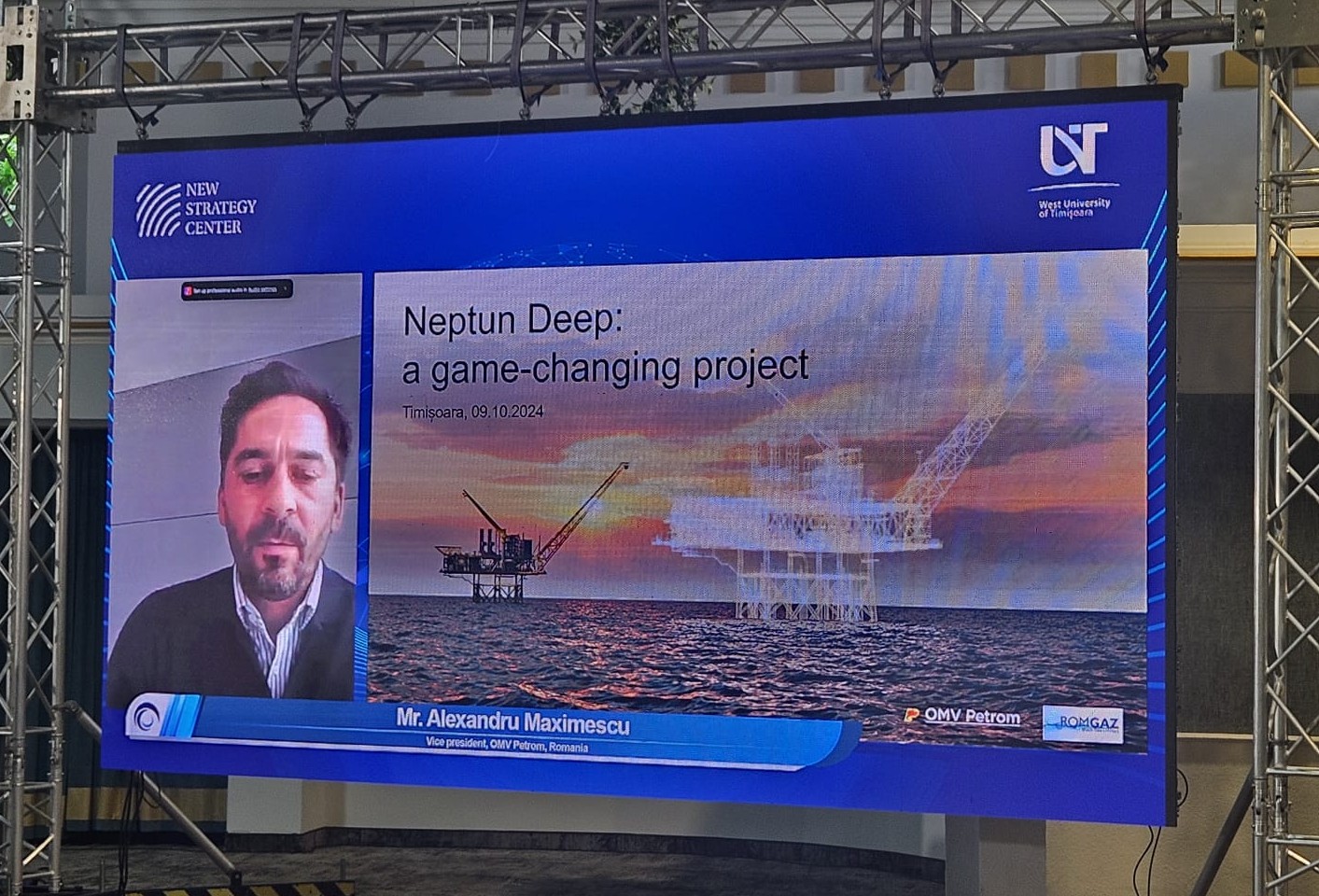
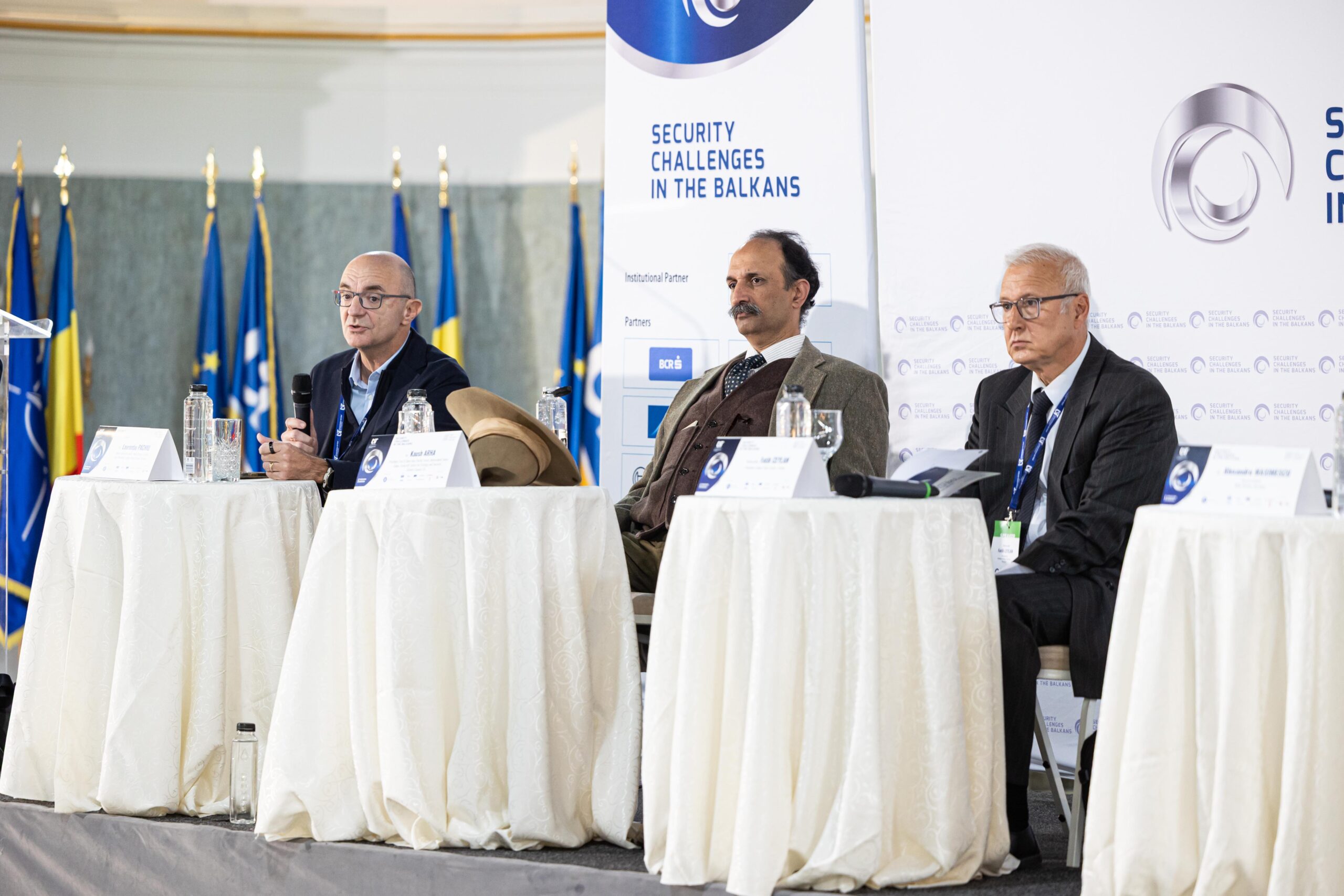
Mrs. Ileana Rotaru, Associate Professor at the West University of Timișoara, moderated the presentation of the book Europe and the Emerging New Global Order. She was joined by Ms. Alina Bârgăoanu, Senior Associate Expert with the New Strategy Center and Dean of the Faculty of Communication and Public Relations at SNSPA University, and Mr. Jochen M. Richter, Chair of the Global Security Forum at the Diplomatic Council, Luxembourg.
Professor Richter presented the main objectives of the book, emphasizing that it goes beyond diagnosing Europe’s vulnerabilities to propose concrete solutions for strengthening its strategic posture. He highlighted the need for Europe to rethink its security framework amid global shifts, technological change, and institutional stagnation. Ms. Alina Bârgăoanu focused on the challenges posed by disinformation, digital dependency, and the erosion of democratic trust. She underlined that Europe must achieve technological sovereignty and redefine the relationship between democracy, prosperity, and security in order to remain a relevant global actor. The discussion concluded with a call to reaffirm the fundamental values of the European Union: unity, democracy, and the rule of law, and to strengthen Europe’s capacity to act coherently within the emerging global order.
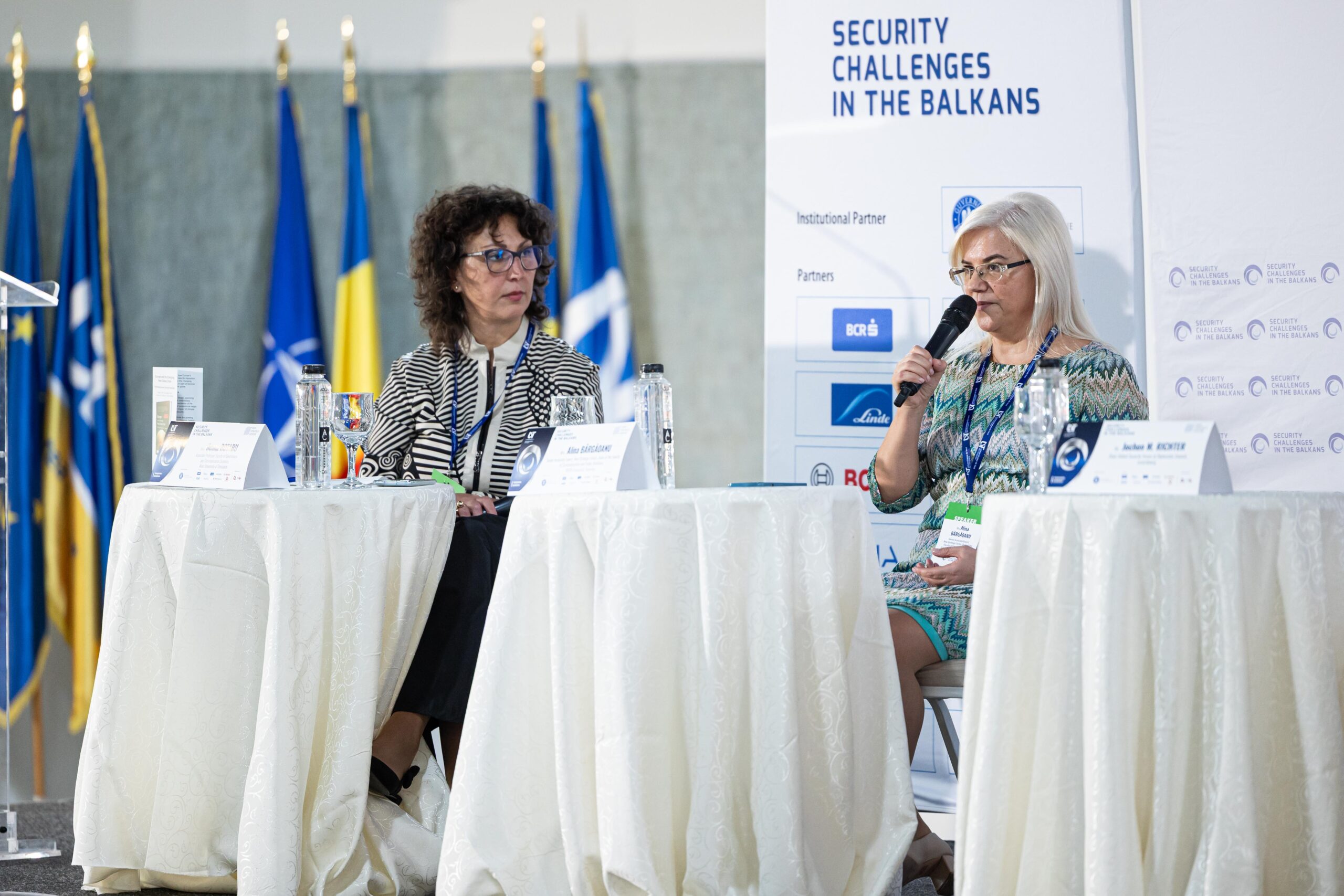
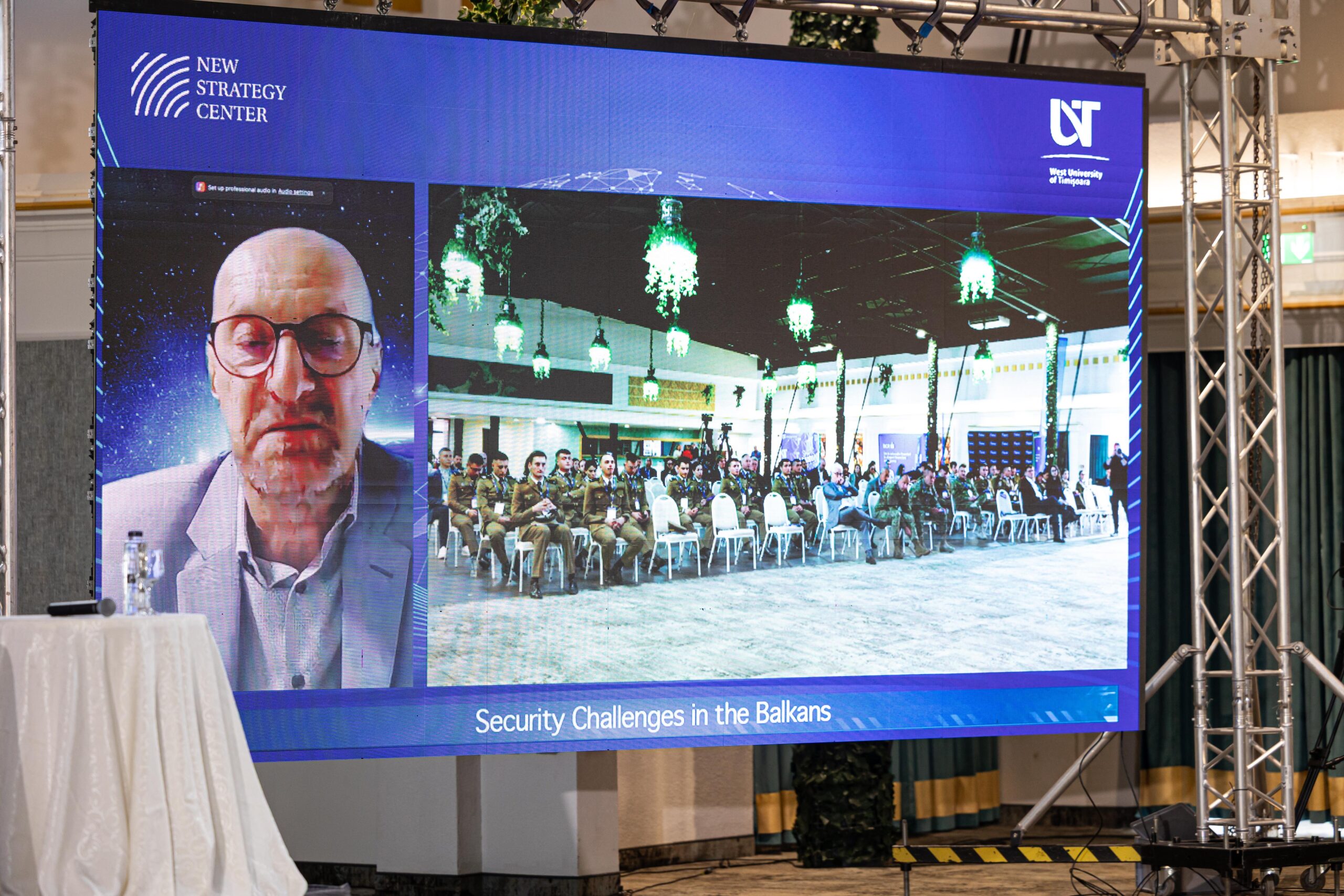
Panel III. Battle of Narratives: Defending Democracy in the Digital World Dominated by AI was chaired by Ion Ioniță, Senior editor Adevărul, Editor in chief, Historia, Romania. Speakers included: Alina Bârgăoanu, Senior Associate Expert, New Strategy Center, Dean of the Faculty of Communication and Public Relations, SNSPA University, Romania; Rumena Filipova, Chairperson & Co-founder, Institute for Global Analytics, Bulgaria; Lucian Margineanu, General Manager, Flex, Romania; Liviu Lucian Oros, Head of fraud monitoring office, BCR, Romania; and Adrian Racotanu, Head of Advanced Computing & AI Romania, Eviden Technologies, Romania.
The panel addressed the growing threats that artificial intelligence and digital disinformation pose to democratic systems. Speakers underscored that dismantling inauthentic online networks, illicit financial infrastructures, and manipulative advertising campaigns does not infringe upon freedom of expression, as this principle pertains to real citizens who bear both rights and responsibilities. In addition, participants highlighted the importance of institutional preparedness and digital resilience, drawing parallels between countering misinformation and conducting regular emergency drills. They also discussed how advances in AI have amplified both the scale and sophistication of disinformation, while simultaneously reshaping labor markets and reducing employment opportunities for younger generations. The discussion concluded that protecting democracy in the digital era requires sustained public awareness, a culture of critical thinking, and coordinated mechanisms at both national and organizational levels to rapidly identify and counter false or manipulative content.
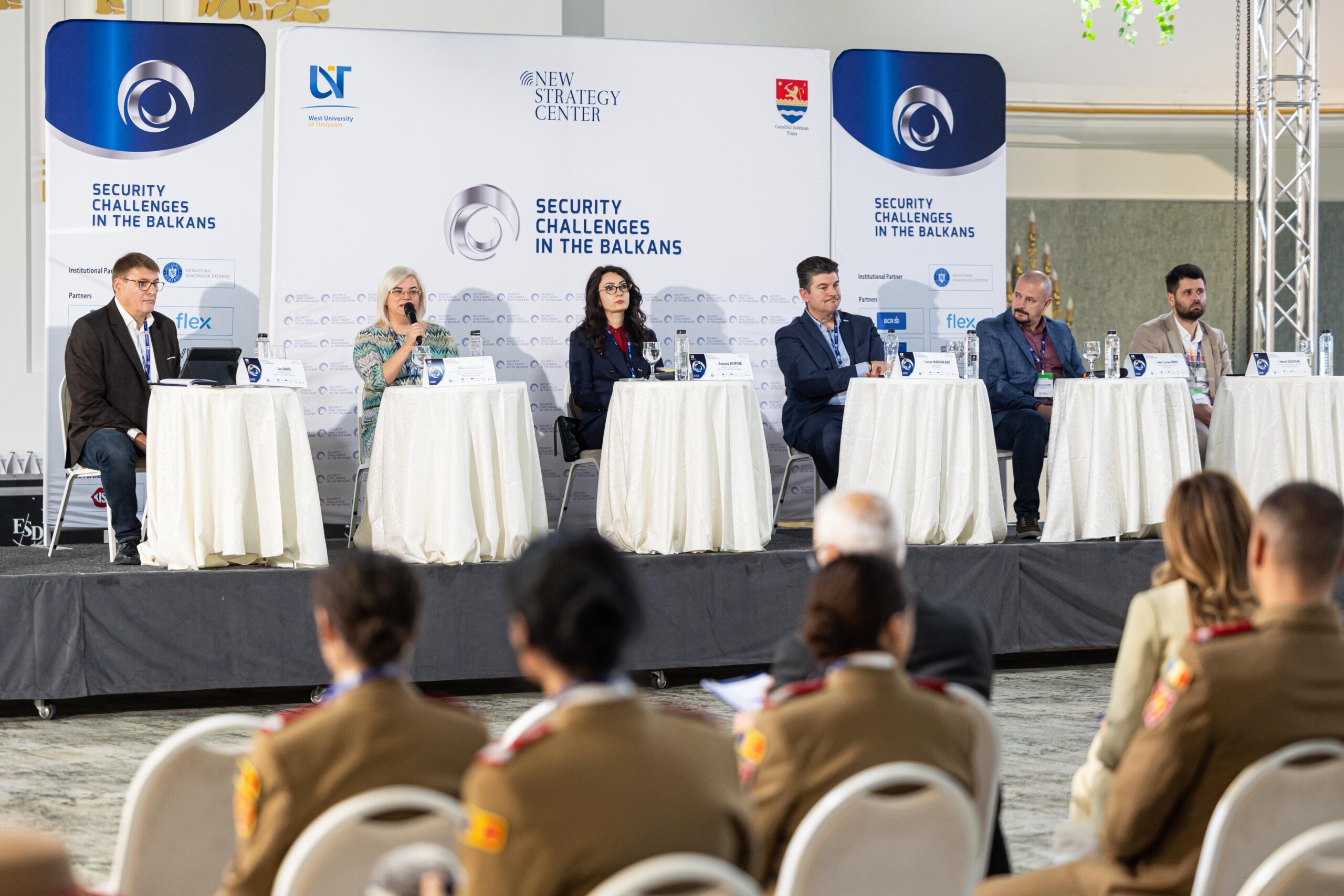
Panel IV. Safeguarding Disruptive Technologies: Ensuring CyberSecurity in an Era of New Challenges and Opportunities was chaired by Claudiu Brândaș, Professor, West University of Timisoara, Romania. The speakers for this panel included Ligia Ardelean, Country Manager, Atos GDC Romania & Bulgaria; Ella Ciupercă, Head of Department Cyber Security and Critical Infrastructure, R4 Researcher, National Institute for Research and Development in Informatics, Romania; Cosmin Bonchiș, Dean of the Faculty of Computer Science, West University of Timișoara, Romania; Mihai Olteanu, Analyst, Cyberint Centre and Alexandru Mărgineanu, Security Solution Consultant, Nokia, Romania.
The discussions examined how advancements in artificial intelligence, quantum computing, and cloud systems are reshaping both the digital threat environment and defense strategies. Trust and verification have become key vulnerabilities in the age of AI, as deepfakes, ransomware, and automated cyberattacks increasingly endanger critical infrastructure and national security. Participants underlined the importance of cross-sector collaboration between public institutions, academia, and private industry, highlighting the need to integrate AI-driven defense mechanisms, post-quantum encryption solutions, and cybersecurity education to enhance resilience. The session concluded that the primary challenge lies not in technological innovation itself, but in the effective integration of technology, human expertise, and regulatory frameworks to respond to rapidly evolving cyber threats.
